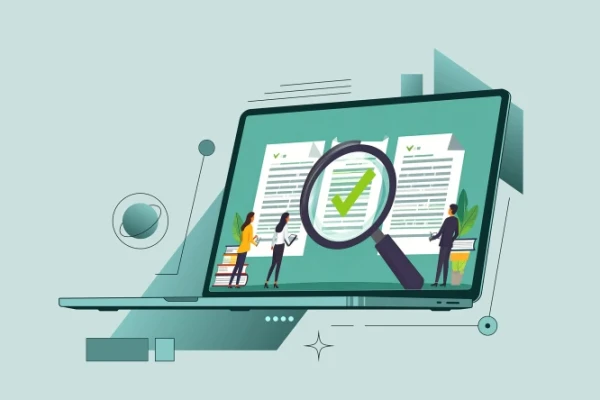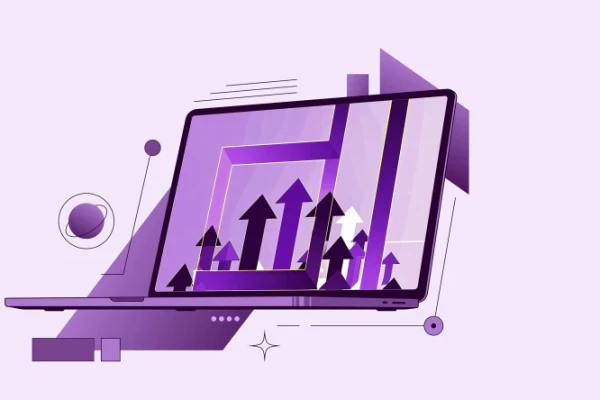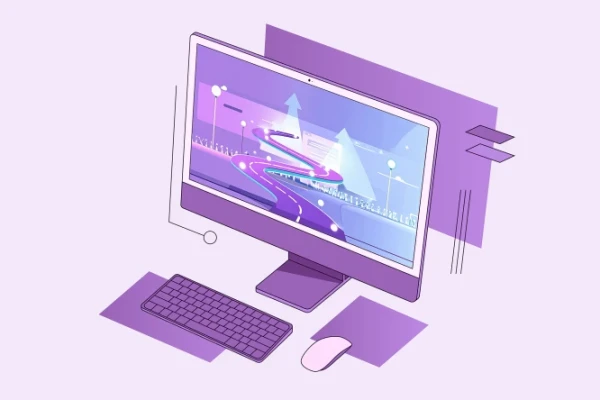E-invoicing with SAP - Ready for the e-invoicing obligation from 01.01.2025?
From January 1, 2025, companies in Germany will be obliged to be able to receive electronic invoices in accordance with the EN16931 standard in B2B business. This is a first step of the Growth Opportunities Act passed in 2024. In the medium term, further requirements for the exchange of electronic invoices will become legally binding, which is why companies must take initial measures today and should plan further actions.
What is an electronic invoice within the meaning of the Growth Opportunities Act?
An electronic invoice (e-invoice) is an invoice that is created, transmitted and received in a structured electronic format in accordance with the European standard EN 16931. This format enables automated processing. A PDF document, for example, does not meet these requirements as it is not suitable for direct further processing. Formats such as XRechnung, which is already used in public procurement, or the hybrid ZUGFeRD format (a combination of PDF and XML file), on the other hand, meet the requirements. Other formats such as the French Factur-X are also permitted, provided they meet the technical requirements of CEN standard EN 16931.
Challenges and differences in electronic invoicing in Europe and worldwide
With this law, Germany is following some of its European neighbors and third countries that have already implemented different laws on the exchange of electronic invoices in recent years. Although there is a European standard for electronic invoicing, the transmission requirements vary greatly from country to country. In non-European countries, the formats of electronic invoices also differ. As a result, there is a patchwork of specifications that internationally active companies with locations all over the world have to take into account.
There are various transmission models that differ in terms of the parties between which the electronic invoice is exchanged. In Italy, for example, there is an obligation to report to the tax authority, which forwards the information to the supplier. There is no direct exchange of information between customer and supplier. In other countries, there is only an exchange between customer and supplier or there is an additional reporting obligation to the authorities. As part of the European Commission’s ViDA initiative, the introduction of an electronic reporting system (VAT) is also planned, which is not expected to be implemented in Germany before the European solution is implemented in 2030-2032.
Relevance of e-invoicing for your company today
Even if not many companies are sending e-invoices in accordance with the EN16931 standard today, this is expected to increase significantly from 2025, as it will then be mandatory to receive e-invoices and many companies will have taken this as an opportunity to implement a comprehensive solution in their project. In addition, e-invoicing is already mandatory for all EU authorities.
Solutions for technical implementation in SAP
With SAP Document and Reporting Compliance (SAP DRC), SAP offers a solution for the transmission and receipt of electronic invoices and the transmission of statutory reports. The solution supports the X-Rechnung and ZUGFeRD formats and uses the PEPPOL network for the exchange of e-invoices. The products S/4HANA, SAP ERP, Central Finance, HCM and BRIM are supported with SAP DRC.
SAP DRC provides a common monitor for all country transactions, as well as a compliance cockpit. The processes are controlled from this cockpit so that business users can implement the logic from different country specifications. The tool performs continuous consistency checks with authority portals for error monitoring and correction as well as monitoring legal deadlines.
Alternative service providers for e-invoices
In addition to SAP DRC, there are other solutions from service providers for e-invoices that may be useful depending on your company’s situation.Companies in the automotive industry, for example, have been using EDI procedures for exchanging invoices for many years. Seeburger, for example, is already a reliable service provider for EDI traffic and provides a solution that also takes into account the requirements of this industry.
An important prerequisite for the functionality of all solutions is high master data quality, e.g. with regard to tax data.Even today, this still presents companies with major challenges when it comes to technical implementation and should definitely be taken into account when estimating costs.
Do you have questions about the legal requirements for electronic invoicing or need advice on the technical implementation in your SAP system? We will be happy to help you!Please contact sapanfragen@spirit21.com directly.
Sara Duman
SAP Senior Consultant
Phone: +49 173 347 7831
E-Mail: sduman@spirit21.com
Sara is a certified trainer for SAP software as well as a certified SAP SD consultant and supports companies with training in SAP projects.




